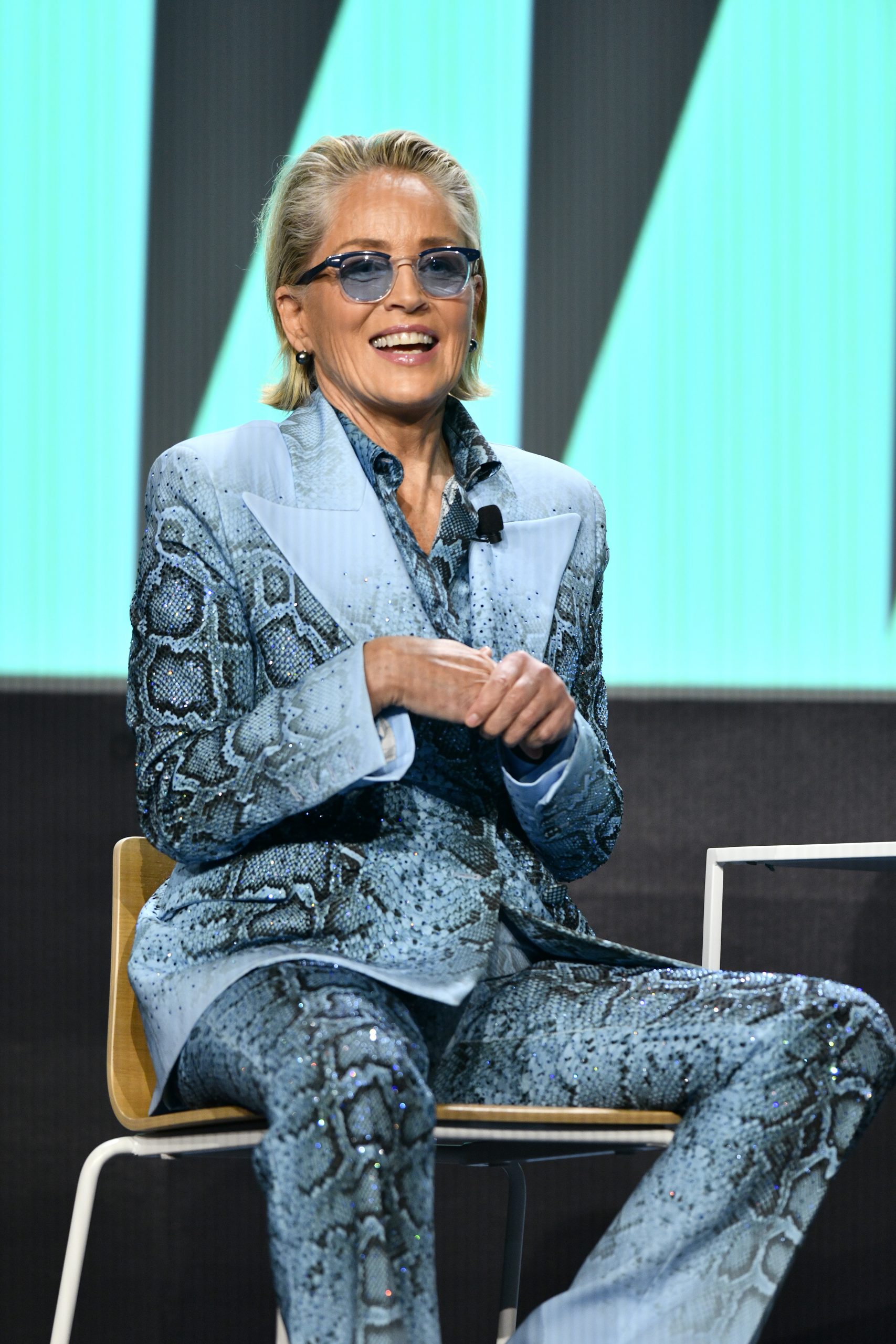Finding Purpose Amid Health Challenges
- “Basic Instinct” actress Sharon Stone, 65, has often used her platform for good, and she even paid for the salaries of actors Leonardo DiCaprio and Russell Crowe early in their careers. She’s also used her influence for cancer advocacy and research.
- Stone suffered a life-threatening stroke in 2001. Then, years later, she had a breast cancer scare after a large tumor was found amid screening described as larger than her breast. Fortunately, it was benign. The experience caused the actress to advocate early breast cancer screening and detection.
- Psychiatrist Dr. Lori Plutchik recommends people faced with a significant health crisis, including a cancer diagnosis, lean into their support system, which can be comprised of loved ones.
- The U.S. Preventive Services Task Force recommends women begin screening for breast cancer at age 40. Women should talk with their doctor to learn about their cancer risk.
SurvivorNet experts recommend performing a monthly breast self-exam to look for anything unusual with your breasts because it can help catch breast cancer between regularly scheduled mammograms.
“Basic Instinct” actress Sharon Stone, 65, benevolence is getting added attention after word spread; she helped cover salaries of actors Leonardo DiCaprio and Russell Crowe for the 1995 hit “The Quick and the Dead.” She was a producer for the film and faced opposition from the studio over the movie budget.
“The studio said if I wanted him so much, I could pay him out of my own salary,” Stone revealed in her 2021 memoir Deadline reports.

Sharon Stone breaks down in tears asking guests to donate more money. She says writing a check for her requires courage since she “lost half my money to this banking thing,” presumably referring to Silicon Valley Bank collapse. “This is not an easy time for any of us.” pic.twitter.com/ZTSP5TQ2od
— Chris Gardner (@chrissgardner) March 17, 2023
Stone was invited to speak at the event because she encountered a cancer scare that helped her understand the value of early detection and mammograms.
Sharon’s Breast Cancer Scare
Sharon Stone had a breast cancer scare after a routine mammogram found something concerning.
“[I] was told that I had breast cancer because I had a tumor that was larger than my breast – and they were sure that I couldn’t possibly have that tumor without it being cancer,” she told People.
Stone said after consulting with her care team, she was prepared to undergo a mastectomy, which removes the breasts to help rid herself of any potential cancer.

There are several factors to weigh when considering a mastectomy; chief among them is whether breast-conserving surgery (or lumpectomy) is possible. Your doctor will look at the size and features of your tumor and your family history to make a recommendation.
WATCH: When to get a mammogram
“I went into the hospital saying, ‘If you open me up and it’s cancer, please take my breasts because I am not a person defined by my breasts,” she said.
She noted how she had friends and family impacted by breast cancer and understands its toll on the body and family.
While doctors were doing the procedure, the tumors ended up benign.
However, as Stone underwent reconstructive surgery, her doctors inserted implants larger than she anticipated.
“When I was unbandaged, I discovered that I had full cup-size bigger breasts, ones that he said, ‘go better with your hip size,” Stone said.
The actress was not pleased with the doctor changing her body “without” her consent.
Helping Patients Understand Why Mammograms Matter
Breast Cancer Screenings
Mammograms are used to screen for breast cancer. Women who haven’t gone through menopause are encouraged to get a mammogram annually between the ages of 45 and 54. If you have experienced menopause, you can get a mammogram every two years.
“We all agree regular screening mammography saves lives,” Dr. Connie Lehman, a professor at Harvard Medical School, told SurvivorNet.
Suppose you fit into the high-risk category for breast cancer, meaning a close family relative has been diagnosed. People at higher risk may have the BRCA1 or BRCA2 gene mutation or had radiation to the chest area when they were young. In cases like this, people in the high-risk category should begin annual mammograms at 30 years old.
What To Ask Your Doctor
If you have been diagnosed with breast cancer, you may have questions about keeping your strength through treatment. Here are a few questions to help you begin the conversation with your doctor:
- What treatment will I be receiving?
- What side effects are associated with this treatment?
- Are there steps I can take daily to help minimize these side effects?
- What physical activity routine do you recommend for me during treatment?
- Do you have recommendations for someone who doesn’t particularly enjoy exercise?
- Can you recommend a dietician who can help me with healthy eating tips and weight maintenance?
I’ve been having trouble sleeping. Do you have any treatment recommendations?
Learn more about SurvivorNet's rigorous medical review process.
